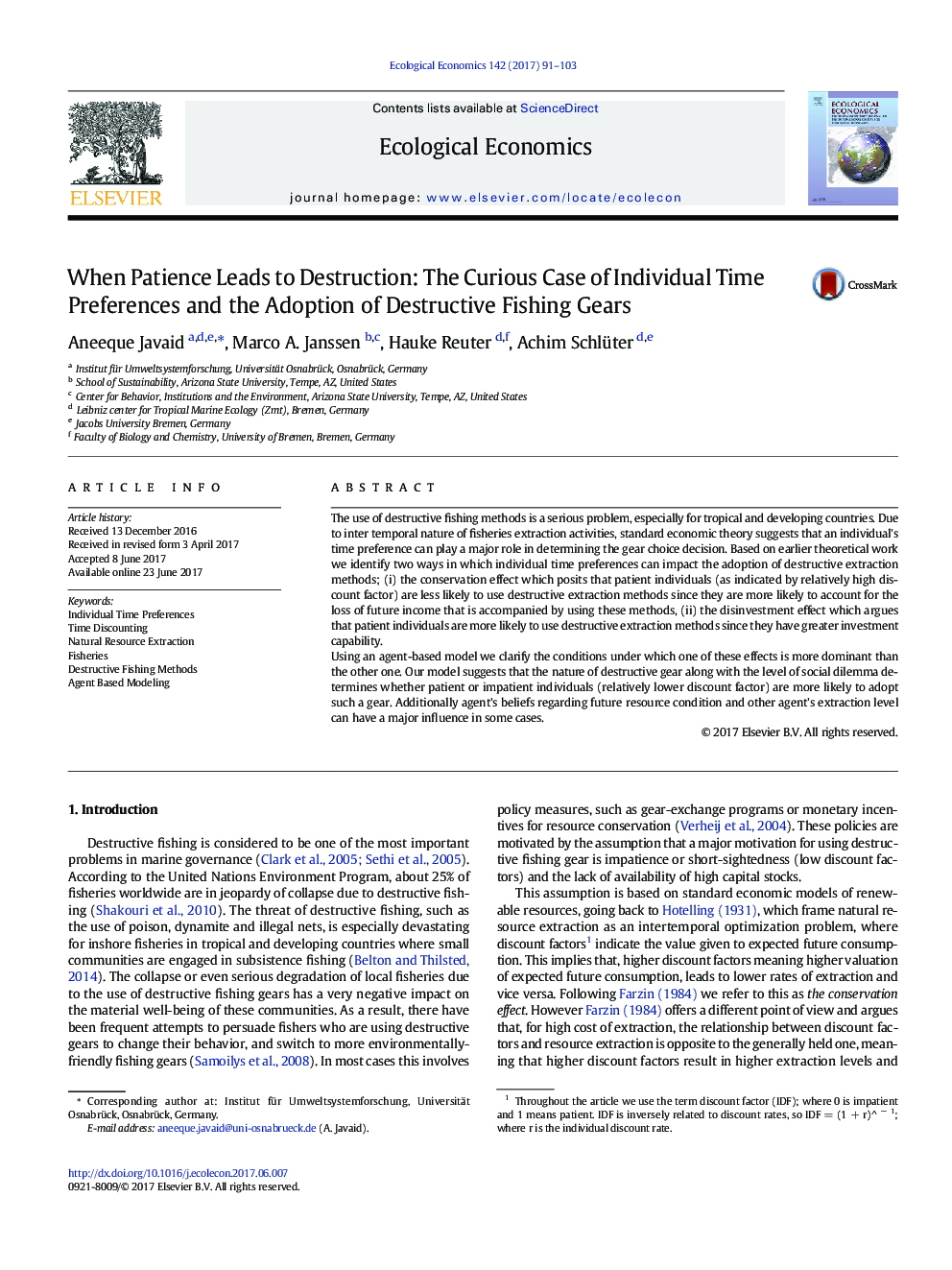| کد مقاله | کد نشریه | سال انتشار | مقاله انگلیسی | نسخه تمام متن |
|---|---|---|---|---|
| 5048538 | 1476337 | 2017 | 13 صفحه PDF | دانلود رایگان |
The use of destructive fishing methods is a serious problem, especially for tropical and developing countries. Due to inter temporal nature of fisheries extraction activities, standard economic theory suggests that an individual's time preference can play a major role in determining the gear choice decision. Based on earlier theoretical work we identify two ways in which individual time preferences can impact the adoption of destructive extraction methods; (i) the conservation effect which posits that patient individuals (as indicated by relatively high discount factor) are less likely to use destructive extraction methods since they are more likely to account for the loss of future income that is accompanied by using these methods, (ii) the disinvestment effect which argues that patient individuals are more likely to use destructive extraction methods since they have greater investment capability.Using an agent-based model we clarify the conditions under which one of these effects is more dominant than the other one. Our model suggests that the nature of destructive gear along with the level of social dilemma determines whether patient or impatient individuals (relatively lower discount factor) are more likely to adopt such a gear. Additionally agent's beliefs regarding future resource condition and other agent's extraction level can have a major influence in some cases.
Journal: Ecological Economics - Volume 142, December 2017, Pages 91-103
